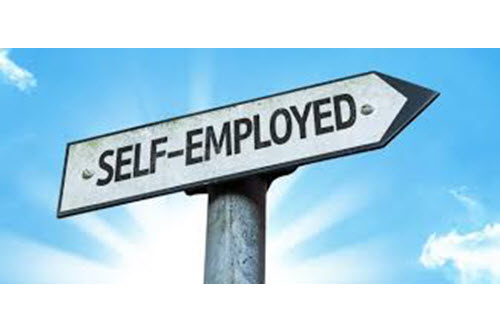Is Self-Employment
A Risk Reduction Strategy?
Being self-employed is no longer code for “recently laid-off” or “fired”. The self-employed professional diversifies risk. It is a privilege for the talented, but it also requires motivation and continual sharpening of the saw. How ready are you to assess your talents? Level of risk tolerance?

As a practice development coach for our industry, I get a ton of questions asking what it’s like to be a sole practitioner and why did I choose to be one. Well, I’ve been practicing on my own since July 2000, so I have some insight.
But I want to couple these questions with the fact that our profession requires us to assess risk. So, let’s reframe the questions as: is it more or less risky to be practicing solo or be part of a firm?
Here’s my take, which focuses on one factor: an honest assessment of your skills.
First, you’ll want to listen to this podcast interview with Daniel Pink. Among his many credits (aid to Labor Secretary Robert Reich, speechwriter for Vice President Al Gore, six times New York Times best-selling author), Pink wrote the iconical “Free Agent Nation” article that appeared in the January 1998 issue of Fast Company. His article was teed up for success by Tom Peters’ article, “A Brand Called You,” which appeared five months earlier in the same magazine. Dan’s article also became the genesis for his first book, which is a good read about this subject.
With the concurrent rise of the Internet, I would argue that the Peters and Pink articles really launched the trend of self-employment. I mean, for those who remember, being self-employed back then was often code for “recently laid off or fired—and looking for a job.” Shortly thereafter, being self-employed became a badge of honor.
But what Pink’s retrospective interview makes abundantly clear is that, in today’s world, self-employment is primarily a privilege for the talented. Meaning, do you have skills (BVFLS or otherwise) that are in demand? Talents that are valued by your marketplace?
If yes, you have a choice about being a W-2 employee or a 1099 free agent. If no, you don’t. It’s (almost) that simple. Here’s why, paraphrasing Mr. Pink:
If you have valuable skills, why would you want to attach your fortunes to the one employer you work for when you could spread your risk among multiple clients or customers who could hire you? Yes, you’re out there…on your own. But with your in-demand skills, you also likely have the talent, drive, and grit to be successful…on our own.
If you don’t have valuable skills…you are in a world of hurt. There is no W-2/1099 choice. You’ll need to stay a W-2 employee to mitigate the risk that you likely wouldn’t survive (long) as a free agent. You’ll need a company to take care of you for as long it’s willing. Or able.
We love to talk about risk—risk management, risk adjusted returns, holding period risk, risk this, risk that. But it’s always in the context of someone else’s risk…the risk belonging to that ephemeral “subject company” or “subject interest.” What about in the context of your very own personal risk?
So here is an acid test to assess your skills. How confident are you REALLY in your talents? And do you REALLY have the discipline for life-long learning? Then, long term, who do you REALLY want to shoulder the risk of your work (gainful employment) and life (retirement plans), yourself or an employer?
I’ve had the privilege of interviewing over 40 professionals (so far) in my Practicing Solo column for NACVA’s The Value Examiner. For what it’s worth, most felt that their only regret about going solo was not doing it sooner. Certainly, something to think about.
I think the lesson here is to be motivated to continually “sharpen the saw,” as Stephen Covey said. It’s a call to action to make sure you always have skills and talents that are in demand no matter who you work for—yourself or a firm. And if you work for a firm now, you’ll be prepared for a future solo career…just in case.
Rod Burkert, MBA, CPA, ABV, CVA, works with BVFLS practitioners and firms that have hit a time or income ceiling and want to grow faster and smarter. If you are feeling frustrated by those limitations, e-mail Mr. Burkert at rod@rodburkert.com.









